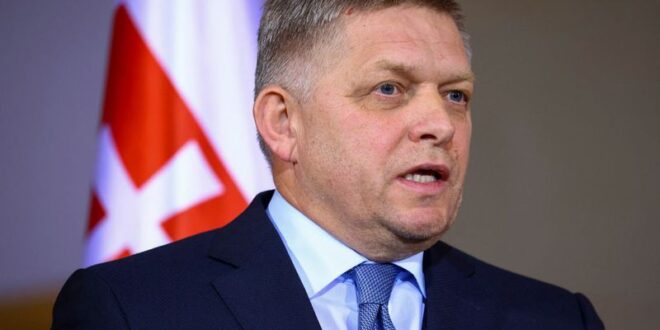(Reuters) – Slovaks vote for a new president on Saturday in an election that could give Prime Minister Robert Fico a boost in his drive to gain more control of public media, soften anti-corruption laws and withhold key support for Ukraine.
Opinion polls put ex-prime minister Peter Pellegrini, 48, a former member of Fico’s ruling SMER party and now the head of its junior coalition partner, HLAS, as the frontrunner to replace President Zuzana Caputova, 50, who is not seeking a second term.
Caputova has been a liberal voice in the European Union country’s polarised politics, supporting further EU integration, minority rights and aid to Ukraine in its war with Moscow.
But many Slovaks appear to have grown frustrated with chaotic governance during the previous government, which lost power last year, and are embracing Fico’s populist pledges of extra pension payments and other spending promises.
Pellegrini has not distanced himself from government initiatives and has also shown support for foreign policy changes that critics say move Slovakia too close to Russia, including a halt to providing state military supplies to Kyiv.
“Our responsibility is to try to stop this conflict … and look for a peace solution,” Pellegrini said in a debate on TV Markiza on Monday evening.
He holds a narrow poll lead over his closest contender, Ivan Korcok, 59, a former foreign minister.
An AKO agency poll put Pellegrini’s support at 40.4% and Korcok at 38.6% on Tuesday, and said Pellegrini would win a second round run-off with nearly 53%.
The first round of voting is on Saturday and a run-off between the top two candidates is on April 6 if no one wins a majority this weekend.
Voters in the past have often balked at giving ruling parties both the government and presidential offices. Caputova won the last presidential election in 2019, riding an anti-corruption wave aimed at Fico’s party, which was in power then.
“CLEANOUT”
Again in power, Fico and his populist coalition government set out late last year to overhaul criminal laws, which critics say will markedly reduce punishments for financial crimes and shorten statutes of limitations that could forever halt many investigations.
Caputova filed a complaint, and the Constitutional Court has halted much of that revamp, although the scrapping of the special prosecutors’ office (USP) – which Fico has accused of being biased against his party – went ahead.
Fico’s government has now launched a planned revamp of public broadcaster RTVS, raising alarms. The European Broadcasting Union (EBU) has called the proposal a “thinly veiled attempt” to turn public television and radio into state-controlled media.
“This government wants absolute power over our country,” Korcok told a rally on Tuesday evening, saying Fico wanted a president who would not stand in his way.
He has also said that Fico’s call for peace talks over Ukraine amounted to a “capitulation”.
Slovak presidents do not wield many executive powers but have a strong role in forming governments and shaping public debate.
(Reporting by Jason Hovet and Jan Lopatka in Prague; Editing by Sharon Singleton)
 BeritaKini.biz Berita Viral Terkini di Malaysia
BeritaKini.biz Berita Viral Terkini di Malaysia





